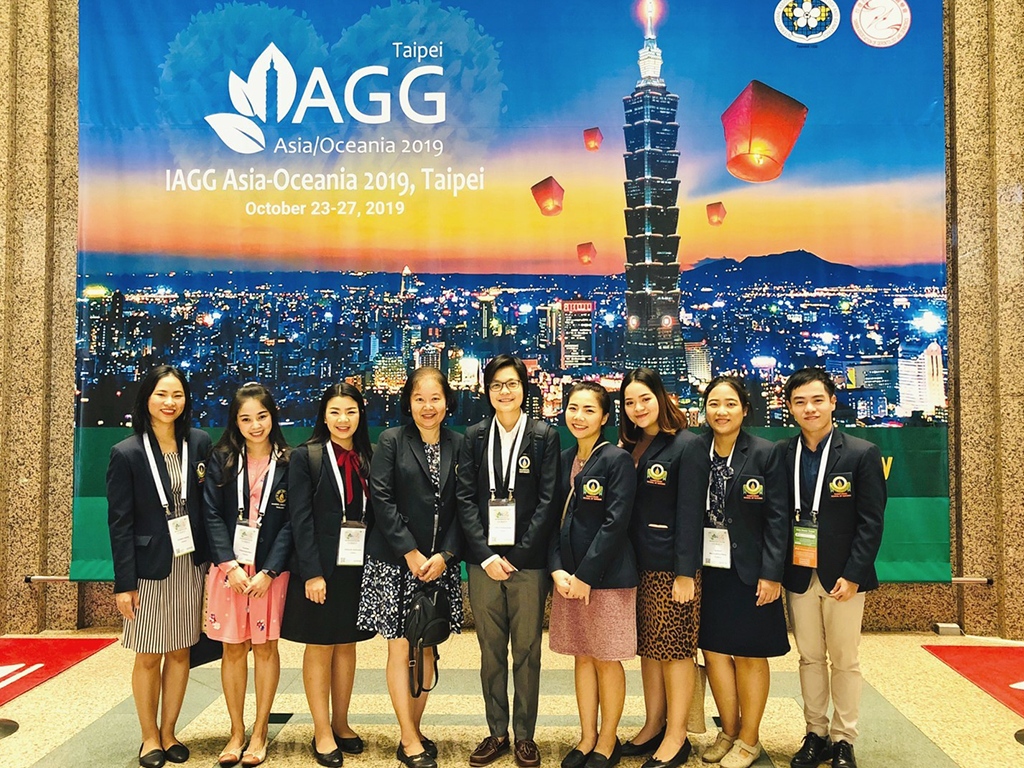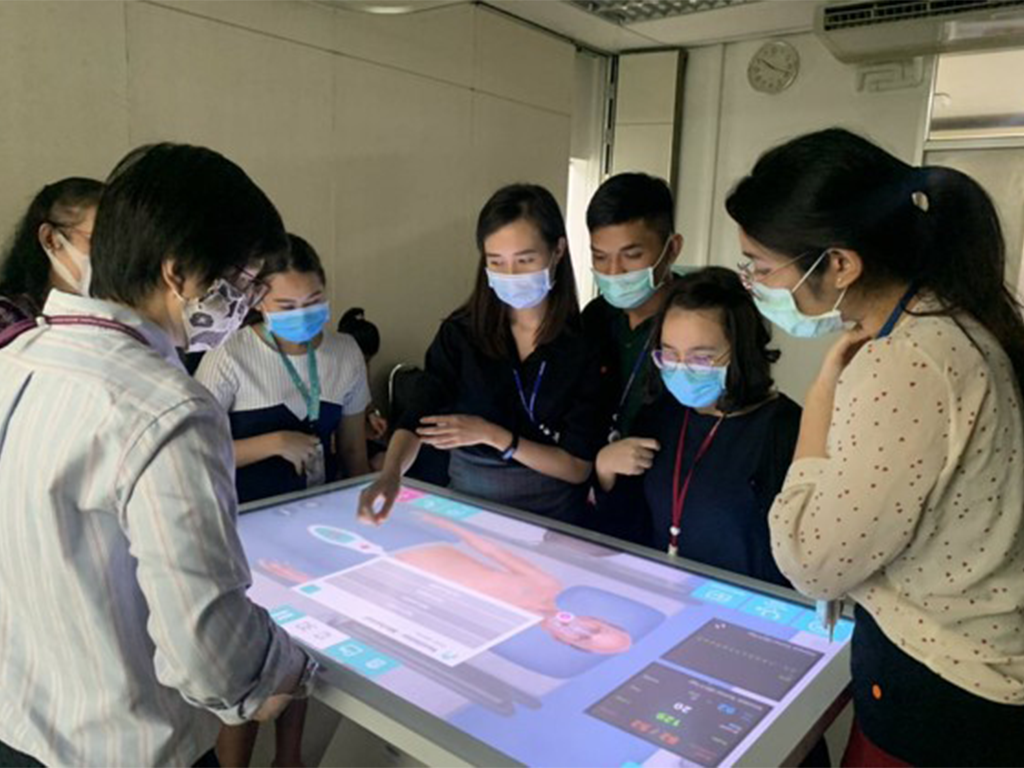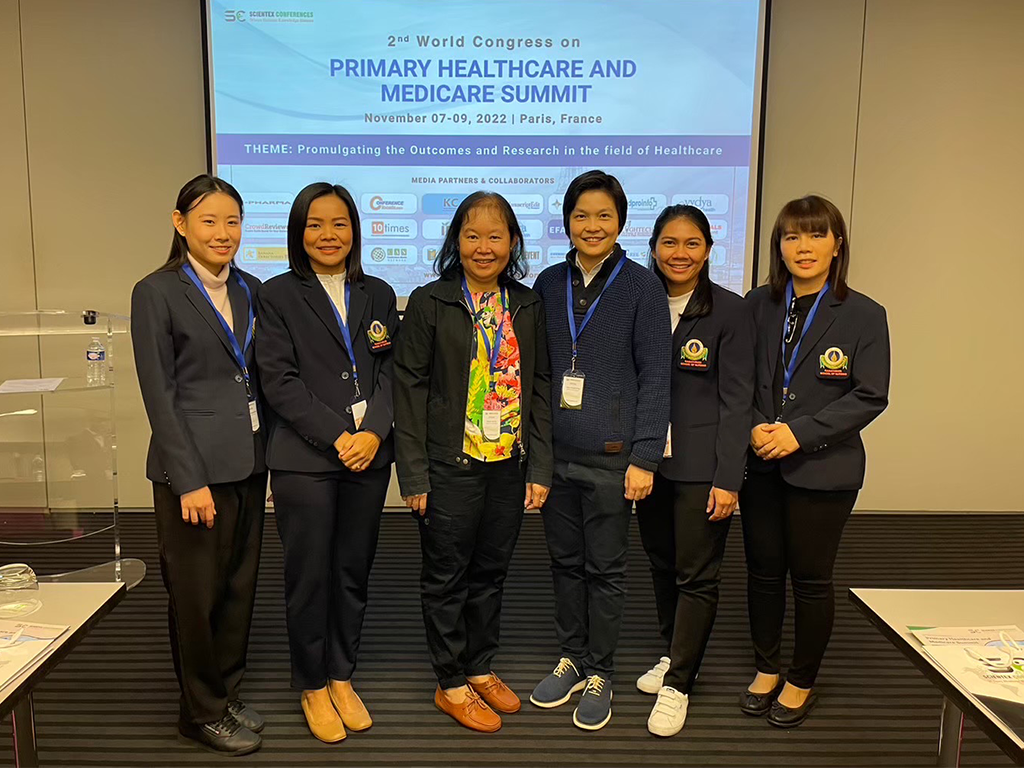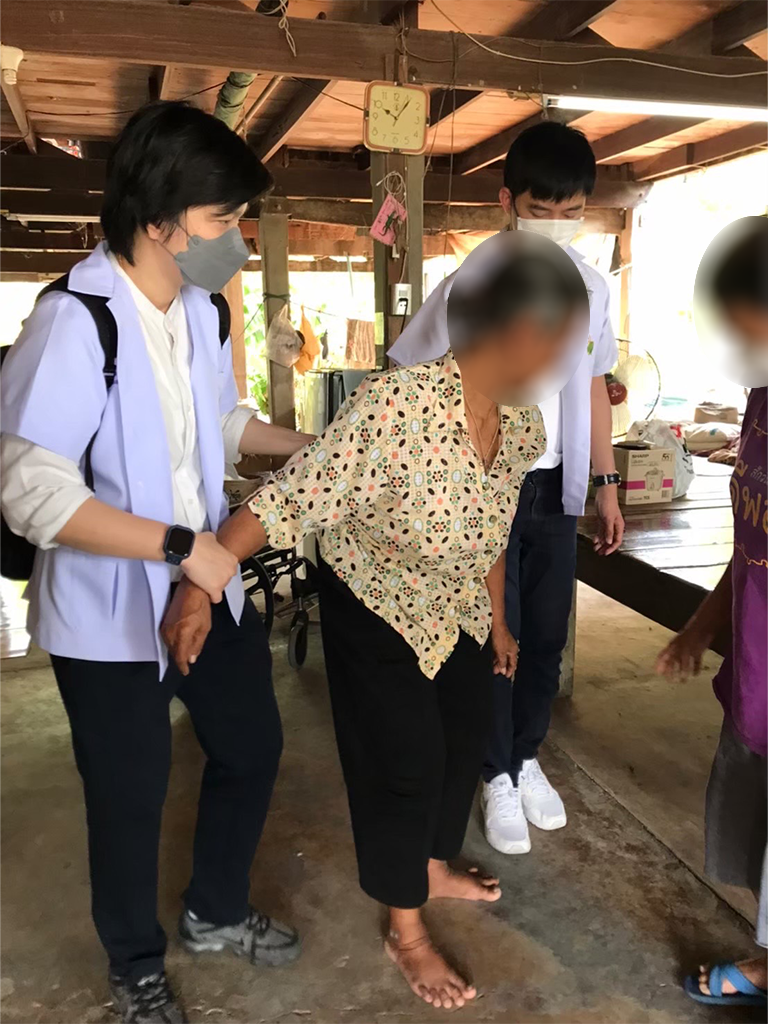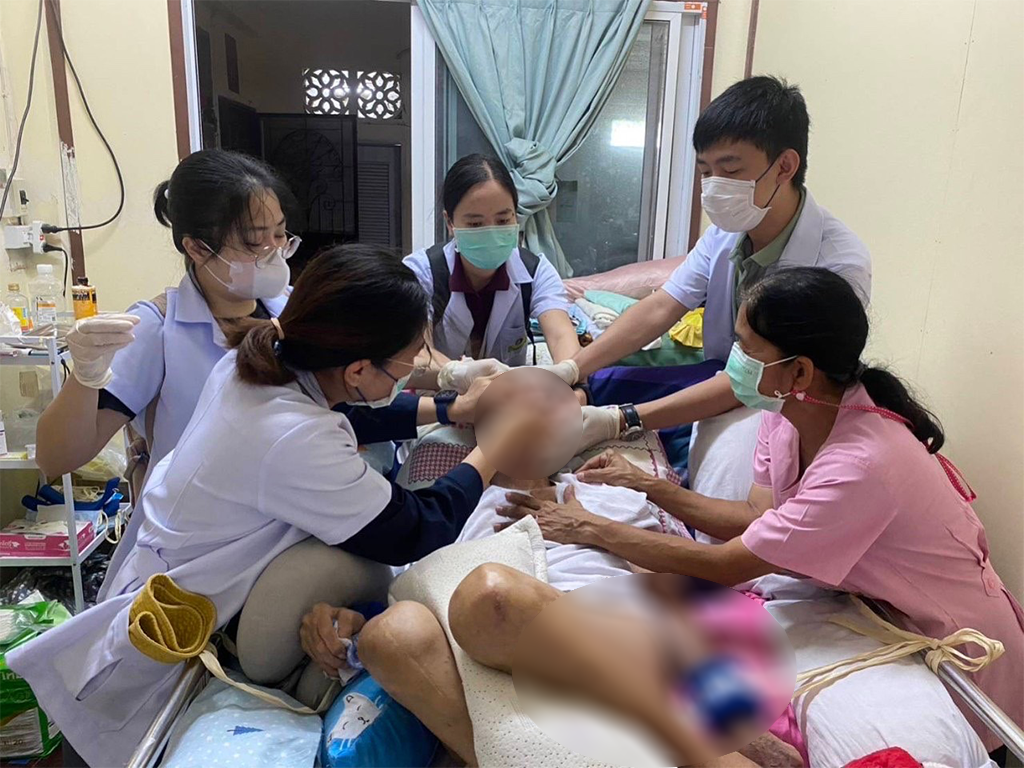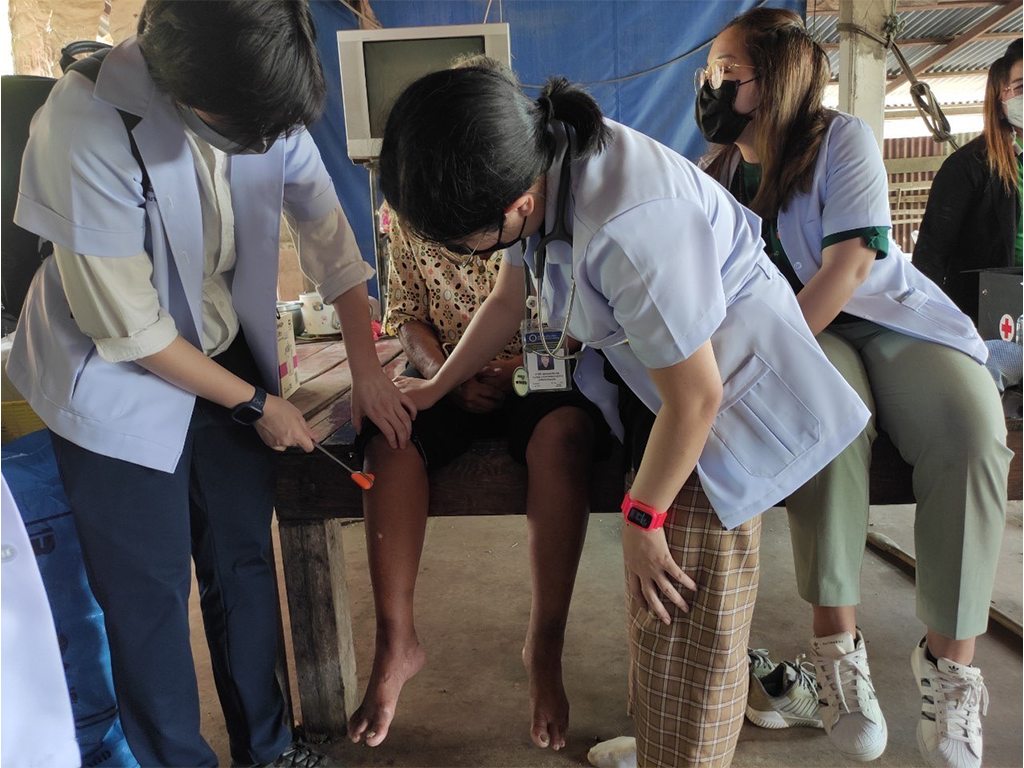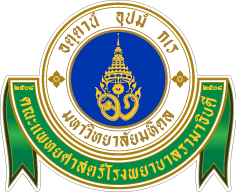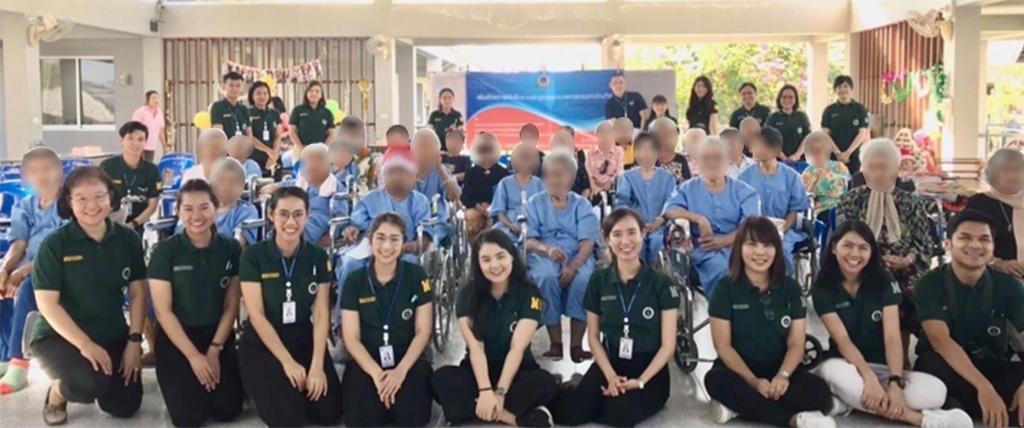
Overview
The Master of Nursing Science (MNS) Program in Gerontological Nurse Practitioner is a discipline focuses on comprehensive health assessment, screening, early diagnosis and primary medical care, including emergency care and referral situations, that pertains to the complexity of aging and health. The MNS program in gerontological nurse practitioner requires to complete a minimum of 36 credits, consisting of 15 credits of core courses, 6 credits for clinical experience, 3 credits for elective course, and 12 credits of thesis paper. The program focuses primarily on enhancing professional gerontological nursing care—planning, nursing practice, and outcome evaluation—not only for healthy older adults, but also for those who are at-risk, suffering from acute and chronic illnesses, and requiring long-term and end-of-life care in the community and long-term care facilities. This professional gerontological nursing care integrates several disciplines such as nursing science, aging science, pathophysiology and pharmacology, technology-enabled and evidence-based care, including ethics of the nursing profession, codes of conduct, law and legislation, and the aesthetic of nursing.
The course of study in the curriculum is designed to foster and enhance professional nursing skills, enabling the student to proficiently perform geriatric nursing practice and be a leader in the health care system. These essential nursing skills correspond to the competency of the nurse practitioner and the gerontological nurse delineated by the Thailand Nursing and Midwifery Council (TNMC) for provision care to older adults aiming to promoting good health and enhancing quality of life. Moreover, the pedagogical approach emphasizes a student-centered learning paradigm, whereby students are empowered to engage in self-directed learning endeavors (lifelong learning) and monitor their academic advancement, utilizing cutting-edge technology, learning from practical experiences, and establishing a productive environment based on a sufficiency economy.
For gerontological nursing practice, the hands-on experience provides opportunities for advancing and expanding the student’s abilities in providing care for older adult patients with complex health problems across their trajectories of illness either in critical, acute, and chronic conditions. The clinical placements are in a university-affiliated hospital, comprehensive geriatric care unit in a community hospital, and in a health-promoting hospital, ensuring the best clinical practice opportunities and collaboration with up-to-date medical management, experience interdisciplinary teamwork, and collaboration with healthcare providers. The teaching and learning strategies draw on scientific knowledge and evidence-based research to enhance students’ problem-solving skills and clinical abilities in planning, implementing, and evaluating the provision of care. In doing so, the comprehensive clinical practices—the 6 credits for the two practicum courses included 270 hours, 250 hours for direct clinical experience, 10 hours for physical examination, comprehensive geriatric assessment, and 10 hours for virtual simulation prior to practicing in the real clinical settings—aim to achieve nursing practice excellence.
The curriculum of Practicum I, the RAGN 508 Nursing Practicum in Common Health Problems and Primary Medical Care, aims to optimize the student's knowledge as well as their practical skills and abilities to promote better care for older adults. According to TNMC, professional care standards and gerontological nursing performances expectations are—understanding the complexity of elder care through the trajectory of illness, assessing the dynamic of health conditions, differentiating diagnoses across bodily systems, prioritizing problems and needs, providing primary nursing care with clinical reasoning, choosing appropriate medication based on the principles of rational drugs use, monitoring and documenting clinical presentation, integrating information for situational analysis of health problems, enhancing self-care capacity in older adults and their families, promoting collaborative teamwork, and continually evaluating care aligned with health outcomes. For curriculum of Practicum II, the RAGN 510 Gerontological Nurse Practitioner Practicum in Older Persons with Illness, this course enables the students to work as a team to implement comprehensive evidence-based care by utilizing the integration of concepts, nursing theories, aging theories, empirical evidence, to initiate a plan for care management for older persons with dependency, frailty, limitations in self-care on activities of daily living, chronic diseases, or disabilities; care management of long-term care system and end-of-life care from hospital to home, concerning ethical and cultural diversity. Notably, both Practicums I and II strengthen crucial skills of advanced practice nurses—the 9 competencies—required by the TNMC.
In addition, the MNS program in gerontological nurse practitioner offers diverse array of research topics to provide optimal care for older adults, including the biobehavioral health science, self-care/self-management/symptom management, and/or rehabilitation of older adults across the lifespan, continuity care in contemporary health problems, innovations, and palliative care.
The end program student learning outcomes of all program options are as follows:
1. Demonstrate professional and ethical behaviors consistent with practice, research, and academic work standards.
2. Utilize nursing knowledge, related disciplines, and evidence-based concepts to conduct research and provide holistic nursing care.
3. Have the ability to conduct research to improve the quality of nursing in the field of study and disseminate works in accordance with a standard.
4. Deliver patient-centered care that is safe, effective, and competent, while employing clinical decision-making skills in a culturally sensitive manner.
5. Create collaborative relationships with interdisciplinary team members, the patient, and the family to promote quality improvement initiatives for health outcomes.
6. Utilize innovative technology and information to communicate and facilitate decision-making to enhance nursing quality and risk management.
The role- specific outcomes of MNS in Gerontological Nurse Practitioner are as follows:
7. Cultivate the role-specific of gerontological nurse practitioner with the following competencies:
a) Develop, manage, and organize care system for older adults in varying circumstances (critical, acute, chronic, and end-of-life).
b) Provide direct care for older adult with complex health problems.
c) Capable to proficiently stratify risk and provide efficient care by integrating the notion of practitioners—screening, early identification, differential diagnostic, prioritizing health problems, prescribing and provision primary treatment, and appropriate referral—that aligns with legislation and TNMC standards for gerontological nurse practitioners.
d) Able to collaborate with others to effectively strategize plan and deliver care.
e) Able to provide empowerment, knowledge dissemination, and coaching older adult patients and their families on necessary skills to take care of themselves.
f) Able to be a facilitator or consultant for older adult patients, families, and health care team.
g) Able to be a change agent by implementing and improving nursing care with an innovative approach.
h) Able to provide ethical and clinical reasoning to enhance effective decision-making.
i) Able to employ empirical evidence (Evidence-Based Practice) and research findings in clinical nursing practice.
j) Capable to proficiently employing outcome management and evaluation.
